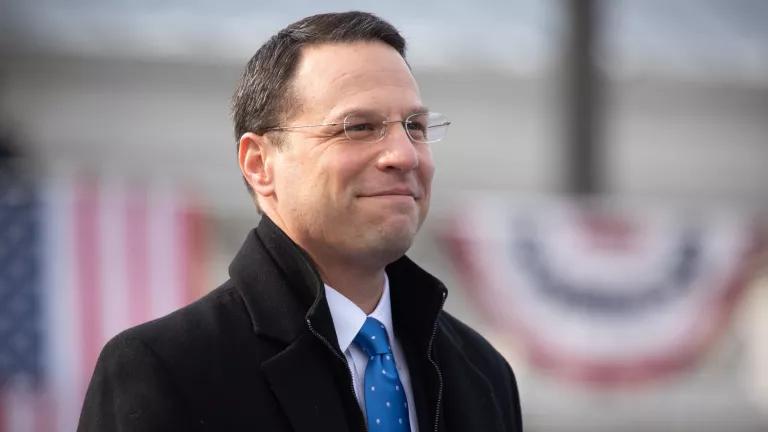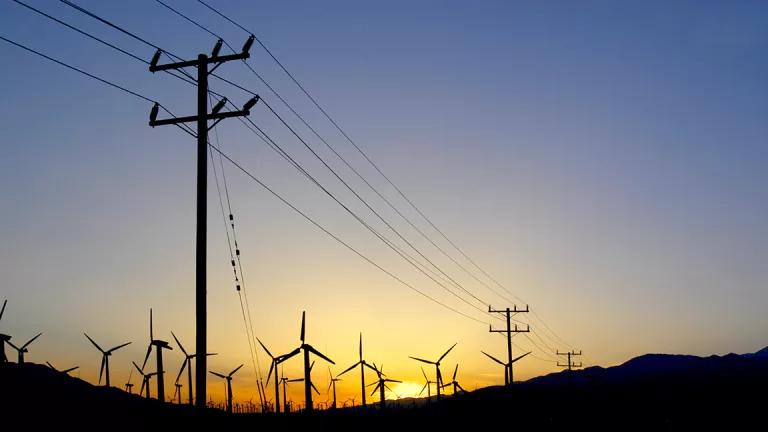Trump Tax Plan: Big Polluters Win, the Rest of Us Lose
Early analysis of the Trump tax plan has found the $2.4 trillion plan is heavily skewed toward helping big businesses and the wealthy—with everyone else receiving a pittance. For decades, the tax code has benefited corporate polluters while leaving behind those who are most at risk from environmental harms.
The Trump plan doubles down on these problems and promises to further entrench established interests by rewarding the wealthy first and foremost at the likely expense of funding for the federal agencies that enforce environmental safeguards and develop the next generation of clean energy while jeopardizing our public lands.
The current code has long benefited corporate polluters. A study by NRDC and the Center for American Progress in 2012 found that oil and gas companies alone receive $8 billion in tax benefits every year and the Trump administration has been increasing those benefits with recent actions to lower royalty rates paid to the government.
The Trump tax plan would cut corporate rates from 35% to 20%. While it promises to close some business tax deductions, it is silent about eliminating the long-standing tax handouts oil and gas companies have received. Given the political power of this sector it’s safe to assume that it wasn’t listed because the GOP has no intention of trying to eliminate them. That means wealthy oil and gas companies will get to keep the benefits while being rewarded with a 15% cut to their corporate tax and elimination of the corporate Alternative Minimum Tax as well. One industry analysis states that for oil and gas companies this likely means more exploration and drilling which we know also means more devastated landscapes, polluted communities, and climate change.
On top of that, the Trump tax plan moves the United States to a territorial tax system where U.S. companies no longer have to pay U.S. taxes on profits repatriated from overseas. Companies like ExxonMobil make a great deal of profit from their overseas operations.The proposed change to a territorial tax system would give these multinational corporations a huge benefit by exempting foreign profits from regular U.S. taxation—probably as big as the long-standing deductions they take under current law. The oil and gas industry itself is gleeful at the prospect of yet another new tax break and mentioned how it will greatly benefit their bottom lines. Unfortunately, tax experts’ analysis find the American public is unlikely to see many benefits from this change.
While big polluters are heavily rewarded by the Trump plan, existing tax credits for clean energy like energy efficiency, wind, and solar are still set to expire and others, like the tax credit for purchasing climate-friendly electric vehicles, could disappear as well. These policies for energy efficiency and clean energy have proven effective at delivering benefits at an exceptionally low cost to the taxpayers while cutting harmful pollution. NRDC analysis shows that the federal tax credits for wind and solar will add over 220,000 jobs and nearly $23 billion to the U.S. economy in 2017. It is critically important that the tax code continue to be utilized to drive clean energy innovation and reduce pollution.
While clean energy companies would benefit from corporate tax cuts, they will remain at a competitive disadvantage to established companies who continue to benefit from the 100 year tax preferences for oil, gas and coal that will remain in place.
Harmful Funding Cuts Coming
So, on one side of the coin this tax plan promises to reward corporations and the wealthy to a tune of $2.4 trillion and on the other side paying for these cuts could mean that Congress will severely cut federal spending or open federal lands like the Arctic National Wildlife Refuge and our oceans to drilling—even further subsidizing the oil industry by selling-off these public resources at bargain basement prices. Either way the big polluters win again and those of us who depend on clean air, clean water and a safe climate will lose as our dependence on fossil fuels expands.
With federal revenues set to shrink dramatically from these cuts, agencies like EPA, which has already seen its budget cut by 20% since the GOP took control of Congress in 2011 and its workforce at its lowest level since 1989, would have even less resources available to them.
EPA is already struggling to meet its enforcement obligations and President Trump’s most recent budget makes it clear cutting funding to the agencies enforcing safeguards is a top priority of his. With tax cuts shrinking the pot of available federal dollars, it’s hard to see how EPA could properly enforce our environmental safeguards like the Clean Air Act, Clean Water Act and toxics laws. Polluters would benefit from a weakened EPA and our communities would suffer.
Even clean energy programs at the Department of Energy, which are helping develop and deploy the next generation of clean energy technologies, would likely be cut back as well, leaving less competition against dirty energy sources and putting more than 3 million clean jobs across the country at risk.
Communities Left Behind
In the face of these criticisms, GOP leaders and President Trump keep saying that tax cuts for corporations and the wealthy will grow the economy and that will solve many problems. Unfortunately, we know from recent history that this money is unlikely to be invested in ways most Americans would benefit.
For example, when President George W. Bush signed a ‘tax holiday’ into law in 2004, it was similarly designed to let companies repatriate funds they had stashed overseas on the promise of broadening the economy. Unfortunately, most of the capital from this tax cut was not invested into improving sustainability, paying better wages or hiring more employees but instead into stock buybacks, debt payments and buying out the competition. While this created wealth for shareholders and CEOs, workers at merged companies were downsized and fired and communities were left behind. Experts are now predicting this pattern will happen again with President Trump’s plan.
For working families, the continued reality is that the benefits of these tax plans never actually trickles down to them. And a tax cut can only help if you pay federal income taxes and the people who need the most help in increasing their earnings are generally exempt from paying federal income tax already. Early analysis of the plan suggests that, despite the increase in the standard deduction, the eliminated deductions and higher bottom tax rate (12% instead of 10%) means working families could end up paying more in taxes. If the Earned Income Tax Credit is taken away or reduced even more would see their tax burden rise.
In addition, the same cuts which threaten funding for EPA, DOE and other environmental programs also threaten safety net programs like Social Security, Medicaid, Medicare, and Supplemental Nutrition Assistance Program (SNAP) benefits that many struggling communities depend on. These are the same communities often most at risk from environmental harm.
Right now, the GOP tax plan is only a framework, so perhaps things will change for the better, but it is hard to see how that happens with this Congress. We should expect that as this moves it will only get better for wealthy polluters and worse for everyone else.



